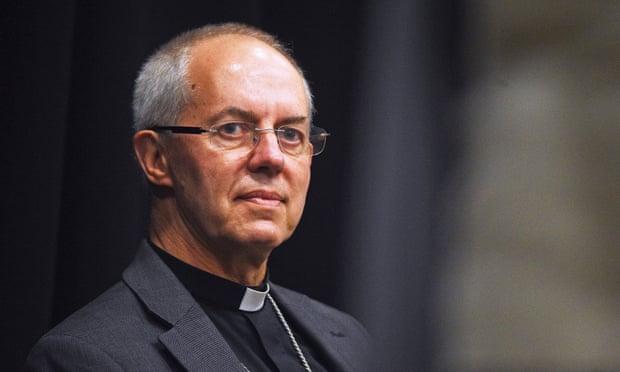Archbishop of Canterbury Calls for Mandatory Reporting of Sexual Abuse
By Harriet Sherwood
The archbishop of Canterbury has thrown his weight behind calls for the government to make the reporting of sexual abuse of children and vulnerable adults mandatory. Justin Welby told the independent inquiry into child sexual abuse (IICSA): “I am convinced that we need to move to mandatory reporting for regulated activities.” Regulated activities cover areas where professionals come into routine contact with children and vulnerable adults, such as teaching, healthcare and sporting activities. In a church context, this would cover clergy and youth leaders. Survivors of clerical sexual abuse have argued that mandatory reporting of allegations or suspicions of abuse to statutory authorities is a vital component of effective child protection. They argue that a failure to comply should lead to criminal sanctions. Welby told the inquiry that John Sentamu, the archbishop of York, shared his view. “We now both believe in mandatory reporting.” Giving evidence at the inquiry’s third session of hearings into the Church of England’s handling of cases of sexual abuse, Welby said he felt “shame and horror that we have done this to people”. He added: “I hope God will forgive us.” Questioned about his response to an allegation of sexual misconduct when he was dean of Liverpool cathedral in 2011, he admitted to making a “serious mistake”. Fiona Scolding, counsel to the inquiry, read an email from a vulnerable adult complainant, accusing Welby of “casual indifference” regarding written allegations that a member of the cathedral staff – given the cipher F-18 by the inquiry – had made sexual advances towards him. The archbishop told the inquiry the complainant had acted in a threatening manner and had used abusive language. “People were very frightened by him,” he said. Welby told the complainant in an email that his and F-18’s accounts were “totally different” and that in the absence of any independent witness he had been unable to come to a conclusion about which account to believe. But, he added: “With the benefit of hindsight and with the things I’ve learned over the last six years, if I was dean now, I would not have permitted F-18 to be on my staff.” He went on: “There were a number of things I got wrong on this … F-18 should not have been involved in the life of the cathedral, I think F-18 should have been suspended at that point.” At the time, he said: “I would have seen safeguarding as being around minors and would have been less conscious of [the risk to] vulnerable adults, which was a serious mistake – and not one I would commit now.” But he denied the complainant’s charge of casual indifference. “I would never have been casual about something like that,” he said. He agreed the C of E was too “tribal”, and said there had been “grievous failures” in terms of diversity. The C of E’s leadership needed better ethnic minority representation, more people with disabilities and greater social range, he said. “Diversity is a huge blessing … people just see things in different ways and will ask the awkward questions.” There was still too much deference shown to bishops, he added. Asked what he could do about that, he said: “I have not got a great answer.” Later, he said he found it strange to be shown deference, but added he was “quite baffled as to how we reverse [it]”. Scolding read a letter dated 5 July 2017 by Welby to Matthew Ineson, a survivor of sexual abuse who insists he has never received an apology from the church over its handling of his disclosures. Welby wrote: “I am deeply sorry for the abuse you suffered and, from your description, how this has been dealt with by the church.” Ineson later said he had never received Welby’s letter. In his concluding remarks, the archbishop told the inquiry: “Mr Ineson feels I didn’t apologise, he may well be right. I thought I had, but clearly I didn’t communicate it well … We’ve got to learn to put actions behind the words because ‘sorry’ is pretty cheap.”
|
.
Any original material on these pages is copyright © BishopAccountability.org 2004. Reproduce freely with attribution.
